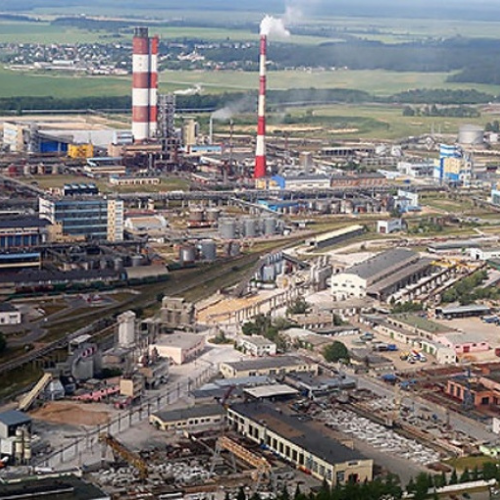A recent investigation it has uncovered a surprising and troubling story about Belarusian fertilizer making its way into Ukraine. This illegal activity is happening even though both Ukraine and the European Union have put strict rules in place to stop it.
The Background of Sanctions
Since Russia invaded Ukraine in February 2022, Ukraine has been fighting hard to protect its land. As a result, both Ukraine and the European Union decided to impose sanctions on Belarus because the country supports Russia.
One of the products banned from being sold in Ukraine with government money is Belarusian fertilizer. Fertilizer is a substance that helps plants grow. The European Union also placed sanctions on the Belarusian company Hrodna Azot in 2021 because it was involved in repressing protests against the Belarusian government, which is led by Alyaksandr Lukashenka. People in Belarus have been protesting against Lukashenka’s rule, and the government has responded with violence.
Smuggling Operation of Belarusian Fertilizer
The investigation reveals a complex smuggling operation that allows Belarusian fertilizer to sneak into Ukraine. The main player in this scheme is Hrodna Azot, a Belarusian company that makes fertilizer. Instead of selling the fertilizer directly to Ukraine, Hrodna Azot used a network of middlemen to disguise where the products were coming from.
How do they do this? The company falsely claimed that its fertilizer was made in Turkmenistan, a country that does not produce that specific type of fertilizer. This is a huge red flag because it’s like saying that a famous toy comes from a country where they don’t even make that kind of toy.
According to documents obtained from a Ukrainian court, Hrodna Azot sent the fertilizer by train to a Russian port called Rostov. From there, the fertilizer was shipped through Bulgaria before finally arriving at a Ukrainian port named Izmayil. This complicated route allows them to avoid the sanctions set by Ukraine and the European Union.
In a Bold Move Against Belarus UK Impose Sanctions on Alfa-Bank
The illegal activities were brought to light during a court case against a Ukrainian company called Oscar Optima. This company was involved in selling the smuggled Belarusian fertilizer in Ukraine. Ukrainian authorities raised alarms when they discovered that the fertilizer had been declared as coming from Turkmenistan, a place that simply does not produce this kind of product.
Evidence and Investigation
The investigation revealed some shocking details about the operation. In April 2023, a shipment of Belarusian fertilizer valued at $1.1 million was traced back to a company registered in Dubai called Agro Chain General Trading LLC. This company acted as a front for the smuggling operation. It was not the real seller but pretended to be so that the Belarusian products could get through the strict checks in place.
Ukraine is Important Geopolitical Land Parcel
Ukrainian investigators found forged certificates of origin. This means that the documents that should prove where the fertilizer came from were fake. They also discovered communications between Oscar Optima and Turkish nationals who were managing the Dubai company. These conversations helped confirm that the fertilizer indeed had illegal origins.
A forensic investigation was conducted to confirm the quality of the fertilizer. It was found to be exactly the same as the products made by Hrodna Azot, proving that the company was still shipping its goods into Ukraine despite the sanctions.
Since the sanctions went into effect, Belarusian products, including Belarusian fertilizer, have been banned from being bought with Ukrainian state funds. However, the smuggling operation shows that some goods continue to slip into the country through third-party nations. This means that they are using other countries as a way to get around the rules.
As the investigation progresses, Ukrainian authorities are pursuing charges against those involved in the operation. They are looking into various serious crimes, including forgery and tax evasion. People found guilty of these offenses could face up to 12 years in prison. The investigation is not only focused on this specific case; officials are also examining shipments from other countries like Uzbekistan, Azerbaijan, and Kazakhstan, which may also involve similar illegal tactics.
In conclusion, the smuggling of Belarusian fertilizer into Ukraine shows how complicated and risky international trade can be. This situation highlights the challenges that countries face when trying to enforce sanctions against those who break the rules.


